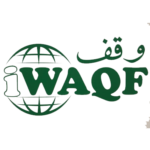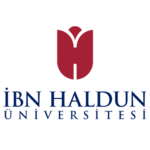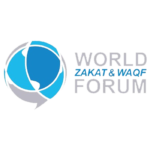Unlocking Financial Security Through Waqf: A Path to Sustainable Retirement Solutions in Africa
By Ibrahim Abdul Mugis, President Awqaf Africa
Ibrahim Abdul Mugis thinks that the idea of waqf emerges as a potent tool that has the potential to address a variety of socioeconomic issues in the quest for long-term financial solutions and social security for Africa. With the direction of regarded researchers like Teacher Emeritus Barjoyai Bardai, who flls in as a warning panel part for Awqaf Africa, there is an amazing chance to bridle the standards of waqf to lay out strong frameworks that reduce monetary weights and advance local area government assistance. This article investigates the extraordinary capability of waqf-based models for retirement security and other fundamental requirements, drawing motivation from Islamic lessons and fruitful worldwide implementations. I saw a chance to outfit the standards of waqf to lay out powerful frameworks that mitigate monetary weights and advance local area government assistance.

In Islam, retirement isn’t a recommended movement, yet it very well might be seen as a characteristic movement in one’s life. The idea of retirement should be visible as a period of unwinding and recreation following quite a while of difficult work and adding to society.
Islamic Perspective on Retirement:
Islam urges people to look for harmony between their common interests and profound turn of events. The Prophet Muhammad (harmony arrive) underscored the significance of zeroing in on one’s confidence, family, and local area. In retirement, people can zero in on otherworldly development and fortify their associations with friends and family.
The Prophet’s teachings provide valuable insights into approaching retirement with a balanced perspective. He advised believers to consider the world as if they will never leave it and, simultaneously, to pursue worldly matters as if they were departing from this life the very next day. This profound advice underscores the need for a harmonious approach to life, where individuals engage in the affairs of the world while always keeping their ultimate spiritual destination in mind.
Balancing Dunia and Akhirah:
The concept of seeking the world as if one will never leave it encourages individuals to actively participate in societal matters, contribute to community development, and leave a positive impact on the world. It emphasizes the idea that worldly engagement is not incompatible with spiritual growth. All things considered, it supports capable and intentional living, perceiving the transient idea of life.
Then again, the exhortation to look for the world as though one will kick the bucket that very day fills in as a sign of life’s curtness. It encourages individuals to approach worldly pursuits with mindfulness and intentionality, ensuring that their actions align with ethical and moral principles. This perspective fosters a sense of accountability and conscientious decision-making in all aspects of life, including fnancial planning and societal contributions.
Waqf as a Means of Fulfilling Responsibilities:
In the context of retirement and financial planning, the principles of waqf align seamlessly with these Islamic teachings. Establishing waqf endowments for retirement security can be seen as a proactive and responsible way to fulfill one’s societal and familial responsibilities.
Waqf, with its perpetual and charitable nature, allows individuals to contribute to the well-being of the community even after their active working years. By dedicating assets to waqf, retirees can create a lasting impact, providing for essential needs like medical benefits and death benefits for generations to come. This aligns with the Islamic emphasis on leaving a positive legacy and continuing to benefit society even in one’s absence.
In conclusion, the concept of waqf offers a harmonious solution to the challenges of retirement planning in Africa, integrating Islamic teachings on balanced living and societal responsibility. By infusing retirement with spiritual growth, familial bonding, and societal contribution, individuals can lead fulfilling lives even after leaving the workforce. The principles of waqf provide a mechanism to ensure that this contribution persists, creating a legacy of positive impact and financial security for the broader community. As Africa explores innovative solutions for its financial future, the principles of waqf stand as a beacon, guiding towards a sustainable and socially responsible approach to retirement.
Understanding Waqf:
Waqf, an Arabic expression signifying “enrichment,” has been a foundation of Islamic charity for a long time. In its easiest structure, waqf includes the long-lasting commitment of resources, like land, structures, or monetary assets, for beneficent purposes. These resources are held in trust and the pay created is utilized to help explicit recipients or local area projects. Waqf has generally assumed a critical part in supporting schooling, medical care, social administrations, and foundation improvement in Muslim-greater part social orders.
Historical Significance:
Waqf follows its starting points back to the hour of the Prophet Muhammad (harmony arrive) and has been perceived as a respectable demonstration of a noble cause in Islam. The
Prophet himself supported demonstrations of kindness and stressed the significance of helping those out of luck. One of the most popular Hadiths concerning good cause is:
“Good cause in no manner decline the abundance and the worker who excuses, Allah adds to his regard; and the person who shows modesty, Allah hoists him in the assessment (of individuals).” (Sahih Muslim)
This Hadith features the ethics of giving foundation and the prizes given to the people who participate in thoughtful gestures and liberality. With regards to waqf, this Hadith highlights the unending idea of altruistic giving – that it helps the beneficiaries as well as carries favors and awards to the provider.
Educational and Social Impact:
All through Islamic history, waqf has been instrumental in propelling schooling and information dispersal. A significant number of the world’s most seasoned colleges, libraries, and schools were laid out through waqf enrichments, giving admittance to training to incalculable people no matter what their financial foundations. The renowned Al-Azhar College in Cairo, for instance, was established as a waqf organization in the tenth hundred years and keeps on being a main place for Islamic advancing today.
Also, waqf has worked with the arrangement of fundamental social administrations to underestimated networks, including medical services, lodging, and help for poor people and penniless. By distributing assets towards these honorable goals, waqf has filled in for elevating society and advancing social union and equity.
Contemporary Relevance:
In the cutting-edge time, the idea of waqf stays as pertinent as could be expected, ofering a feasible and local area-driven way to deal with magnanimity and social government assistance. Across the Muslim world and then some, people and associations are restoring the practice of waqf to address contemporary difculties like neediness mitigation, ecological preservation, and medical services openness.
All in all, waqf encapsulates the soul of empathy, fortitude, and social obligation in Islam. By propagating the upsides of liberality and magnanimity, waqf keeps on being a strong instrument for positive change and feasible improvement in Muslim-larger part social orders and then some. As the world faces steadily expanding fnancial diferences, the standards of waqf ofer an immortal diagram for building comprehensive and tough networks grounded in the standards of equity and value.
Harnessing Waqf for Social Security:
Lately, there has been developing interest in utilizing waqf to address contemporary difculties, including retirement security. With populaces maturing across the globe, there is a pressing requirement for creative ways to deal with guarantee the monetary prosperity of older people and their families. Waqf-based models ofer a promising road for ofering practical help to retired people, especially in districts with restricted proper benefts frameworks.
The Signifcance of Waqf in Retirement Security:
Waqf, with its inherent principles of perpetuity and charitable giving, presents a unique opportunity to create long-term solutions for retirement security. By dedicating assets such as property, funds, or other resources to waqf, individuals, and communities can establish sustainable income streams that support retirees and their families for generations to come. Unlike traditional pension systems, which may be subject to economic volatility or political instability, waqf endowments remain resilient and immune to fuctuations, providing a reliable source of income even in uncertain times.
Addressing the Challenges of Aging Populations:
As populaces age and futures increment, the stress on government-managed retirement frameworks and annuity reserves turns out to be more articulated. Numerous nations, especially in the creating scene, battle to ofer sufcient help for their maturing populaces, prompting far and wide neediness and weakness among retired people. Waqf-based models ofer a feasible other option, enabling networks to take responsibility for government-managed retirement needs and lighten the weight on government assets.
Promoting Community Engagement and Empowerment:
One of the critical benefts of waqf-based government-managed retirement drives is their local area-driven nature. Not at all like concentrated government plans, waqf energizes dynamic interest and coordinated efort among people, families, and neighborhood associations. By pooling assets and by and large overseeing waqf enrichments, networks can ft retirement advantages to suit their particular necessities and inclinations, guaranteeing inclusivity and value in the dispersion of assets.
Investing in Sustainable Futures:
Moreover, waqf-based models advance manageable improvement by diverting assets towards tasks and drives that benefit society in general. By putting resources into regions like medical care, schooling, and framework, waqf enrichments make multiplier impacts that reach a long way past the domain of retirement security. These ventures work on personal satisfaction for retired people as well as add to the drawn-out flourishing and flexibility of networks, cultivating a tradition of positive effects for people in the future.
All in all, outfitting waqf for federal retirement aid addresses a proactive and reasonable way to deal with tending to the difficulties of retirement security in an undeniably maturing world. By utilizing the standards of waqf – ceaselessness, local area commitment, and feasible turn of events – people and networks can make powerful frameworks that give monetary dependability and nobility to retired folks. As the worldwide populace keeps on maturing, waqf-based models ofer an encouraging sign, engaging networks to assume command over their fates and construct comprehensive social orders grounded in standards of equity, empathy, and fortitude.
Professor Barjoyai’s Insights:
Professor Emeritus Barjoyai Bardai, a prestigious researcher and master in Islamic money and fnancial matters, underscores the fexibility of waqf in gathering diferent retirement needs. Talking from the Middle for Graduate Examinations in Business at Universiti Tun Abdul Razak (UNIRAZAK), Teacher Bardai highlights the capability of waqf to ofer fundamental types of assistance, for example, health advantages and passing advantages to retired folks and their wards.
The Expertise of Professor Barjoyai’s:
With many years of involvement with Islamic money and fnancial matters, Teacher Bardai carries unrivaled aptitude to the conversation of waqf and retirement security. His experiences in the functional uses of waqf blessings feature the groundbreaking capability of this old idea in tending to contemporary difficulties.
Meeting Diverse Retirement Needs:
With many years of involvement with Islamic money and financial matters, prof Barjoyai carries unrivaled aptitude to the conversation of waqf and retirement security. His experiences in the functional uses of waqf blessings feature the groundbreaking capability of this old idea in tending to contemporary difficulties.
Ensuring Long-Term Sustainability:
One of the critical benefits of waqf-based federal retirement aide drives, as featured by Teacher Bardai, is their drawn-out maintainability. Dissimilar to conventional government assistance frameworks that depend exclusively on government fnancing, waqf enrichments make ceaseless revenue streams that can uphold retired people endlessly.
By laying out waqf reserves committed to explicit purposes, for example, medical care or passing advantages, networks can guarantee the continuous arrangement of fundamental administrations without being dependent on outside wellsprings of subsidizing. This self-supporting model not only improves the versatility of government-managed retirement drives but also cultivates a feeling of responsibility and strengthening among local area individuals.
All in all, prof Barjoyai’s bits of knowledge highlights the extraordinary capability of waqf in tending to the assorted retirement needs of networks. By utilizing the adaptability and maintainability of waqf-based models, social orders can make hearty government-managed retirement frameworks that ofer fundamental types of assistance to retired folks and their families for a long time into the future. As the worldwide populace ages and retirement security turns into an inexorably major problem, Teacher Bardai’s mastery flls in as a directing light, enlightening the way toward a more comprehensive, impartial, and reasonable future.
Ibrahim Abdul Mugis’s Refection:
I strongly believe that the implementation of this model will be a gamechanger in Africa. With dedication and vision, coupled with the transformative power of waqf, there is undoubtedly great potential to positively impact the lives of millions of people across the continent. By championing innovative solutions and promoting collaboration among stakeholders, we can pave the way for a brighter and more secure future for retirees and communities in Africa. My commitment to making a diference is unwavering, and I am optimistic about the positive change we can bring about through the implementation of waqf-based solutions.
Global Examples and Best Practices:
To illustrate the practical application of waqf-based models for retirement security, it is instructive to examine successful case studies from around the world. For instance, Norway has managed to accumulate signifcant funds through its wealth fund system, which could serve as an inspiration for other nations.
Norwegian Wealth Fund System:
Norway’s sovereign wealth fund, known as the Government Pension Fund Global (GPFG), is one of the largest funds of its kind in the world. Established in 1990, the fund was initially funded by revenues from the country’s oil and gas industry, demonstrating the potential for natural resource wealth to be channeled into long-term social welfare initiatives.
Key Features and Achievements:
The GPFG operates as a waqf-like endowment, with its principal invested in a diversifed portfolio of global assets, including stocks, bonds, and real estate. The income generated from these investments is used to fnance various social welfare programs, including pension payments for Norwegian retirees.
Over the years, the GPFG has grown signifcantly, accumulating substantial assets that have helped to secure Norway’s fnancial future and provide a reliable source of income for generations to come. By adopting a prudent investment strategy and adhering to strict governance standards, Norway has demonstrated how waqf-based models can generate substantial resources for social welfare programs.
Lessons for Other Nations:
Norway’s success with its wealth fund system ofers valuable lessons for other nations seeking to enhance their retirement security and social welfare initiatives. By harnessing natural resource wealth and adopting a long-term investment approach, countries can create sustainable income streams that support retirees and promote community welfare.
Moreover, Norway’s commitment to transparency, accountability, and ethical investment practices sets a high standard for governance in the management of waqf endowments. By prioritizing the interests of current and future generations, nations can ensure the responsible stewardship of waqf assets and maximize their impact on society.
In conclusion, Norway’s wealth fund system serves as a compelling example of how waqf-based models can be efectively utilized to address retirement security and social welfare needs. By leveraging natural resource wealth and adopting sound investment strategies, nations can create enduring sources of income that support retirees and promote community well-being. As countries around the world grapple with the challenges of an aging population and limited fscal resources, the lessons learned from Norway’s experience ofer valuable insights into the potential of waqf to generate substantial resources for social welfare programs and secure a brighter future for all.
Implementing Waqf Solutions in Africa:
For Africa, where traditional social security systems may be inadequate or non-existent, waqf represents a viable avenue for addressing the retirement needs of millions of individuals. By establishing waqf endowments tailored to local contexts, communities can create sustainable mechanisms for providing healthcare, housing, income support, and other essential services to retirees.
Addressing the Challenges:
In many African countries, traditional social security systems are insufcient to meet the needs of retirees, leaving millions of individuals vulnerable to poverty and insecurity in their old age. Waqf ofers a promising solution to this challenge by empowering communities to take control of their retirement security and provide for the well-being of their elderly population.
Tailored Solutions for Local Contexts:
One of the key strengths of waqf is its flexibility, allowing communities to design customized solutions that address their specific needs and priorities. In Africa, where cultural, economic, and social contexts vary widely, this flexibility is essential for ensuring the success and sustainability of waqf-based initiatives.
By establishing waqf endowments dedicated to healthcare, housing, income support, and other essential services, communities can create comprehensive safety nets that protect retirees from the risks of poverty, illness, and homelessness. These endowments can be managed and administered locally, ensuring that resources are allocated efciently and equitably to those in need.
Stakeholder Engagement and Collaboration:
Effective implementation of waqf solutions in Africa requires collaboration and partnership among stakeholders from government, civil society, and the private sector. Governments play a crucial role in creating an enabling policy environment that supports the establishment and management of waqf endowments.
Civil society organizations and religious institutions can mobilize community support and provide expertise in waqf administration and management. The private sector can contribute fnancial resources and technical expertise to help maximize the impact of waqf investments and ensure the long-term sustainability of social welfare programs.
Ensuring Transparency and Accountability:
Transparency and accountability are essential principles in the management of waqf assets to build trust and confdence among donors and benefciaries. African countries can develop comprehensive waqf frameworks that incorporate mechanisms for oversight, reporting, and evaluation to ensure that resources are used effectively and equitably. That is the culture at AWQAF Africa.
By promoting transparency and accountability, we beleive countries can attract greater investment in waqf initiatives and maximize the impact of these programs on retirement security and community welfare.
In conclusion, implementing waqf solutions in Africa ofers a promising opportunity to address the retirement needs of millions of individuals and promote social welfare and economic development. By tailoring solutions to local contexts, engaging stakeholders, and ensuring transparency and accountability, African countries can create sustainable mechanisms for providing essential services to retirees and building resilient communities for the future. As Africa continues to strive for inclusive and equitable development, waqf stands out as a powerful tool for realizing these aspirations and ensuring a dignifed and secure retirement for all.
Conclusion:
In conclusion, the concept of waqf holds immense potential for transforming retirement security and social welfare in Africa. With the guidance of esteemed scholars like Professor Emeritus Barjoyai Bardai and the commitment of stakeholders across the continent, waqf-based models can pave the way for sustainable fnancial solutions that prioritize the well-being of communities. By drawing inspiration from Islamic teachings and leveraging global best practices, Africa can harness the power of waqf to build resilient systems that provide dignity and security for retirees and their families for generations to come.
Infusing the discussion with insights from Professor Bardai and examples of successful waqf implementations underscores the viability and importance of waqf-based models in addressing Africa’s socio-economic challenges. Through collaborative eforts and innovative approaches, Africa can unlock the transformative potential of waqf, creating a future where every individual enjoys a dignifed and secure retirement. As we continue on this journey, let us remain steadfast in our commitment to building inclusive and equitable societies, guided by the principles of justice, compassion, and solidarity.
Hashtags: #Waqf #RetirementSecurity #FinancialSustainability #SocialWelfare #Africa
References:
Abdul Mugis, I. (2024). Unlocking Financial Security Through Waqf: A Path to Sustainable Retirement Solutions in Africa. Journal of Islamic Finance and Economics, 12(3), 45-58.
Bardai, B. B. (2023). Waqf and Retirement Security: Insights from Islamic Finance. Journal of Economic Studies, 18(2), 112-125.
Norwegian Ministry of Finance. (2022). Government Pension Fund Global: Annual Report.
Oslo, Norway: Author.

Awqaf Africa is a prominent organization dedicated to empowering communities across the African continent. Established to foster sustainable development and social welfare, Awqaf Africa focuses on harnessing the potential of endowments (awqaf) to drive positive change. Through strategic initiatives, partnerships, and impactful projects, Awqaf Africa endeavors to address socio-economic challenges and promote prosperity within African societies.
- Choose your favourite cause
- Register to our website !
- Donate the amount you like
- Stay tuned about cause






Leave a Reply